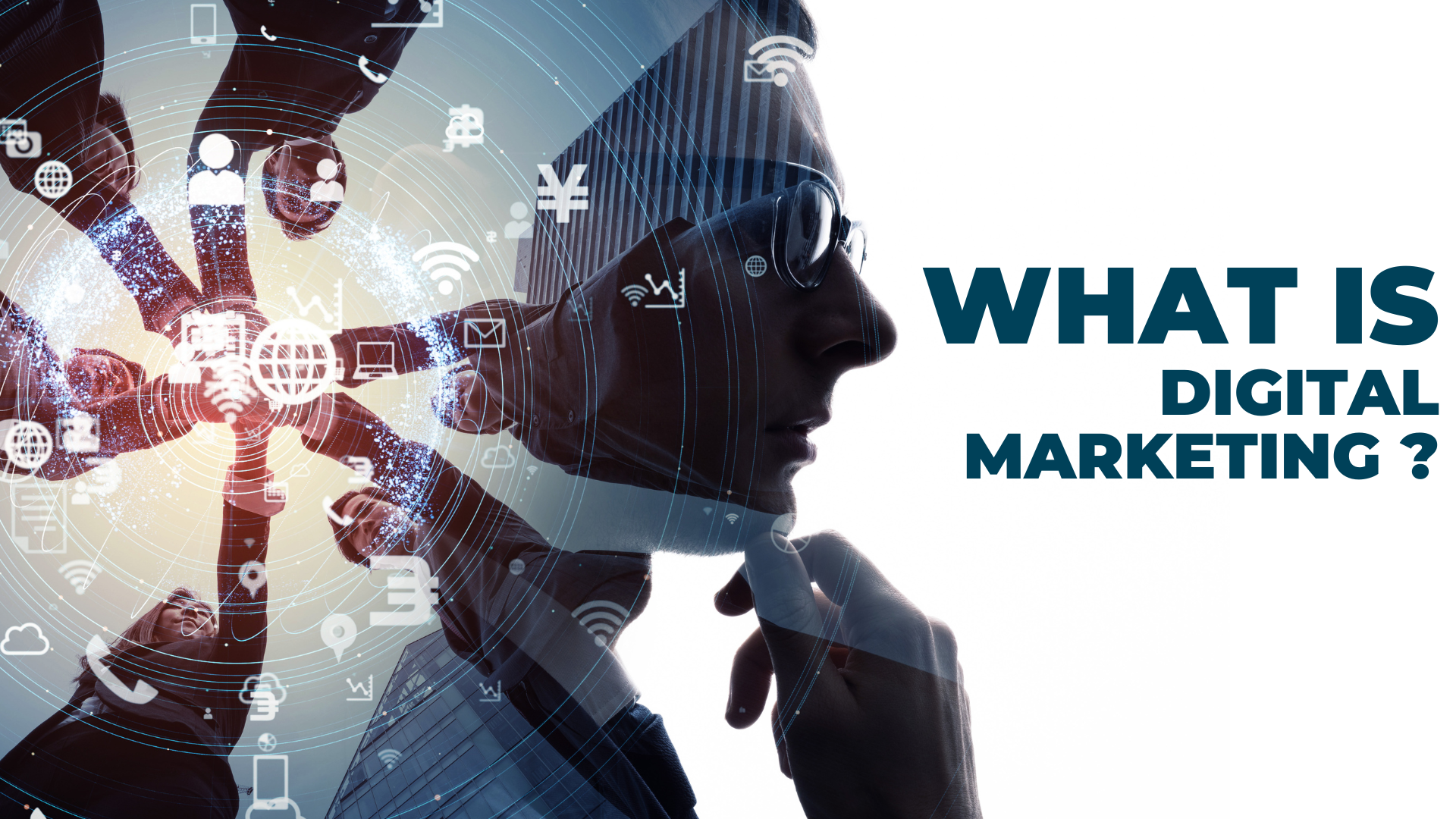In today’s digital world, online marketing has become essential for businesses. With the rise of the internet and digital devices, more people are spending time online, which makes digital marketing the best way to reach ideal customers. But what exactly is digital marketing, and how can businesses use it to grow the business? Let’s explore what digital marketing is, its types, and how it can benefit your business.
What is digital marketing?
Digital marketing refers to using online platforms and tools to promote products, services, or brands. It includes using the internet, mobile apps, social media, email, and search engines to connect with potential customers. Unlike traditional marketing, which uses TV ads, print, or radio, digital marketing happens online. The goal is to create awareness, engage with customers, and drive sales and leads for your business.
Types of Digital Marketing
Digital marketing includes many different strategies, tools, and platforms. Here are some of the most common types:
- Search Engine Optimization (SEO): SEO is about improving your website to show up higher on search engine results like Google, Bing, Yahoo, DuckDuckGo, and more. Improving your Search Engine Optimization helps your website show up in search results when people look for products or services you offer. It can drive more traffic to your site and increase the chances of getting more potential customers and conversions.
- Pay-Per-Click (PPC) Advertising: PPC is a type of paid ad where you pay each time someone clicks on your ad. Google Ads and social media platforms like Facebook and Instagram offer PPC ads. This method helps you get results quickly and drive traffic to your website.
- Social Media Marketing (SMM): Social media marketing involves using platforms like Facebook, Instagram, Twitter, and LinkedIn to promote your brand. It’s a great way to interact with customers, share updates, and build brand awareness.
- Content Marketing: Content marketing is about creating helpful, valuable, and high-quality content to attract and engage your audience. It can include blogs, videos, infographics, and ad copy. Thorough offers valuable content, and you build trust with your customers, which can lead to conversion.
- Email Marketing: Email marketing involves sending messages directly to people’s inboxes. Most businesses use email tools to share promotions, updates, or newsletters with people interested in their products or services.
- Affiliate Marketing: An affiliate earns a commission by promoting another person’s or company’s product or service. The affiliate chooses a product they like, promotes it, and earns a share of the profit from each sale they make.
Examples of Digital Marketing in Action
- E-commerce Stores: Online stores often use SEO, PPC ads, and social media
- E-commerce Stores: Online stores often use SEO, PPC ads, and social media to attract ideal customers. For example, an online clothing store may use meta ads (Facebook and Instagram ads) to promote its product and optimize its website to rank well on Google. So when people try to find a website and search for products or services like yours, they can reach your brand.
- Restaurants: Many restaurants use local SEO to show up when people search for places to eat nearby. They also post food photos on social media and Google business listings to attract customers.
- Online Education: Educational institutions use content marketing, SEO, and email campaigns to attract students. For example, an online course provider may share educational blog posts, offer free webinars, and send promotional emails to encourage sign-ups.
Benefits of Digital Marketing
- Wider Reach: Digital marketing allows businesses to reach a global audience, breaking down the limits of location. With the right strategy, even small businesses can reach potential customers worldwide.
- Cost-effective: Digital marketing is often more affordable than traditional advertising methods like TV, radio, etc. Even businesses with small budgets can run successful campaigns using social media or search engine ads.
- Analysis of the result: With digital marketing, you can track the success of your campaigns. You can analyze website traffic, click-through rates, and sales to see what’s working and what needs improvement.
- Personalization: Digital marketing lets you personalize your messages to different groups of customers. You can create ads, emails,
🚀 New Batch Starting Soon!
Don't miss your chance to enroll now.
00 Days00 Hours00 Minutes00 Seconds
- Engagement: Digital marketing allows for direct interaction with customers. Whether through comments, messages on social media replies to emails, or chats on your website, businesses can engage with their audience and build relationships.
- Targeted Advertising: Digital marketing lets you target specific people based on their interests, location, and behavior. It ensures that your ads are seen by people most likely to be interested in your products or services.
- Increased Conversion Rates: Digital marketing strategies like SEO, PPC, and social media can drive more people to your website, leading to more conversion. It increases the chances of turning visitors into customers.
Conclusion
In today’s digital world, businesses cannot afford to ignore online marketing, whether they try to reach potential customers or want to grow their business quickly. By improving their website’s SEO, running ads, or engaging on social media, you can get your customers in a short time. online marketing offers many growth opportunities for every business. By understanding the different types of digital marketing and their benefits, companies can create effective strategies that increase visibility, engagement, and conversion.


